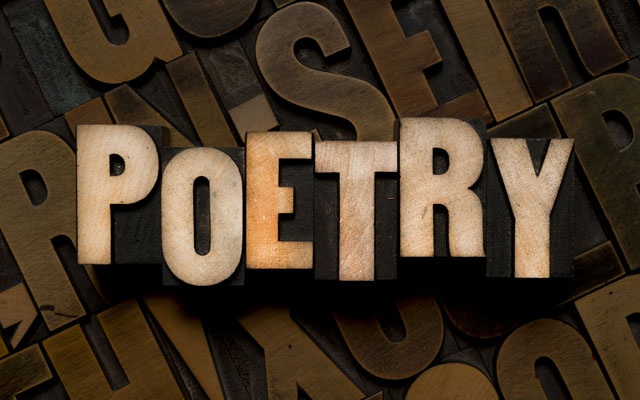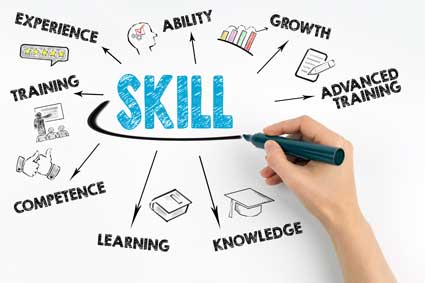About Ethics
Ethics is the application of moral principles that guide decision-making in our personal and professional lives. Ethics refers to conduct or behavior within societal expectations. The word "ethics," itself, originated from a Greek word that means character – which is the moral constitution of an individual. Ethics requires people to consider if their actions are acceptable in any particular circumstance, and they are by no means limited to that of the individual, but may also address the moral practices of everything from the corporate world, to government, professionals, to laymen, and all that lies between and beyond. Ethics asks the individual to reflect on their basic values and purpose as a contributing member of society. It is the practicality of imposing norms and standards to common and uncommon circumstances.
Ethics generally does not become a concern until a unique situation arises and we are asked to apply our beliefs of what is correct or incorrect, right or wrong. For the journalist, this may happen when they are asked to reveal their sources in open court after promising confidentiality to the informant. In fact, this is one of the most frequent ethical dilemmas the journalist can face. Another troubling aspect of journalism is when the professional may be required to invade privacy in order to investigate allegations of unethical behavior on behalf of a public or private individual. Of course, your response to the issue will probably depend on which side you represent. If you are the person whose privacy has been invaded, you may believe a journalist behaved unethically. However, if you are on the side of the wronged public, you may be very thankful that the journalist investigated the matter. You may even be all for the invasion of privacy for the public good – unless, and until, it happens to you; and then the morality of the behavior could again be called into question.
What is true is humans do regularly behave unethically, and that how we, as a society, believe this should be uncovered and brought to the attention of the public is the source of disagreement. That is not surprising, but rather to be expected, when there are billions of people inhabiting this planet – each with their own point of view -- and most putting the concerns of their own welfare, and that of their loved ones, above those of society.
Although ethics might be seen as inflexible, a case of right or wrong, black or white, to take this stance ignores the underlying complexity of many issues. That is not to say that rules are not an important part of the journalistic (and real world) process. Only that rules serve as a guide and may be referenced in decision-making about the ethics of a situation. All too often, new and unique circumstances arise that push the envelope of perennially accepted ethical responses. There is simply no "one size fits all" ethical principle.
In light of this fact, ethics must be looked at as dynamic, and its application requires higher-level thinking and problem solving. Circumstances are always changing, and that may instigate the need to re-evaluate the ethics, as well. An excellent example of this is gay marriage. A century -- even half a century ago -- society condemned people who were labeled as gay. Homosexuality was considered a psychological aberration, and those who proclaimed homosexual leanings could be jailed. At the very least they were ostracized. But the younger generations are immersed in what so many younger generations before them have done. They are questioning the principles of their elders, and are finding them to be lacking, to say the least. Surveys reveal that it is the generational strata, falling at 40 years of age and above, that tend to adhere to their parents' limited acceptance of what was morally acceptable in a relationship. To the older generation, homosexuality and gay marriage still fall outside of the boundaries of decency. Yet, this was the very generation that also promoted free love (open and sexual casual relationships) and instigated a boon in children born outside of marriage, as well as being the culprits of skyrocketing divorce rates. All of these were social mores that were absolutely frowned on by their parents.
So today, with each successive generation, it appears the reins of social ethics continue to loosen, as society hurtles toward a model where nearly all behavior is acceptable. That puts the study and application of ethics in a bind – for there are fewer and fewer people who are referring to them in their decision-making process. Collectively, new social attitudes, new technology and a fluid economy and political paradigm have put ethics on the back burner, more and more.
Basic Ethical Models and Terminology
At the same time, people decreasingly seem to have an understanding of ethics or how it applies to their own lives. In light of this, a brief lesson on the subject of ethical theories is in order. Recurring themes in ethics are rights, virtues, and communal relations. Translated to driving questions, the first subject, rights, asks the question of whether an action violates the rights of others. Next, regarding virtues, the question to be posed is if a behavior or conduct impacts the virtue, character or integrity of another. Finally, how does an action affect the relations of persons within a society?
Based on these questions, ethics is often categorized as teleological ethics, deontological ethics, and virtue ethics. Of course, much of this information is distilled from highly sophisticated studies of philosophy, the pursuit of some of the greatest human minds, such as Socrates and Aristotle. The aim here is not to make the reader a philosophical scholar – but to urge them to think about ethics against the backdrop of human behavior, and then apply this to their actions as a journalist.
Teleological ethics urges maximizing outcomes and minimizing harm as the basis for decision-making and actions. It can be thought of as "offering the greatest good to the greatest number of people." Deontological ethics embraces the concepts of justice and fairness; a sense of duty and basic rights overrides the pursuit of individual or large group happiness. Virtue ethics aims to create people who are civic-minded and virtuous. Its purpose is to develop ethical character in wisdom that can be applied to complex challenges. Virtue ethics is driven by educating others, and developing their moral compass. The purpose is to achieve a good life through virtuous actions.
There are other ethical models, as well -- all sophisticated, and all incorporating an extensive explanation that differentiates it from the others, and serves as the most relevant for human existence. Yet, the reader may find there are kernels of truth in each ethical philosophy that is of value to the human race. This certainly complicates the issue of ethics as it relates to journalism. It may be advisable to think further about these ethical models before continuing, and deciding your own personal view of ethics.
Ethical Ranges
As if it weren't challenging enough to try to internalize the basics of ethical philosophy, it might be quite surprising to realize that ethics falls along the continuum of the human experience. There is the issue of personal ethics, or one's own position on questions of right and wrong. Professional ethics is more rigid in that a set of standards has usually been composed and practitioners of the field are expected to adhere to them. There are often times when the personal and professional ethics may clash, such as recently, when a government employee refused to issue a marriage license to a gay couple, despite the fact that gay marriage has been legalized.
Ethics also encompasses the social and political in regard to justice and rights. Research ethics is a unique field unto itself, and is aimed specifically at those who are engaged in higher academia and the pursuit of truth in the sciences, social sciences, and areas of learning. Next, a growing field of ethical concern is the environment. Questions of our behavior toward our natural resources, and even the way we treat animals, have come front and center in the study of ethics.
While the subject of ethics could fill another textbook, our purpose was to introduce the reader to common terminology and basic concepts. To become a scholar of philosophy would require a different academic path altogether. However, the influence of ethics in the role of a journalist is a valid and separate consideration for which the reader should be prepared, based on the brief tutorial.
Ethics and Journalism
Journalistic ethics is the application of the professional standards of this industry. These principles are filtered through the broader parameters of philosophy, itself, as well as acceptable social and political assumptions. For example, the journalistic function of keeping the public informed about governmental wrongdoing falls under the commitment of the press to a free and open democracy. (The concept of journalistic ethics is likely to look very different in closed societies where the press is government-run).
The student of journalism or a practicing journalist should realize that there are principles that guide this profession. The prerequisite is to have an understanding of the public function of journalism and the standards by which its aims are met. In other words, what are the duties of a journalist?
It would seem there is no question the journalist has a duty to honesty and integrity, to keeping a promise and actively serving the public good, while avoiding undue harm. Journalists are expected to meet their socially imposed obligation to their skills to offer fair and unbiased reporting, ensuring that a diverse and comprehensive presentation of a story is offered. Journalists are also reminded of their potential to influence readers, the subject of their reporting, and the greater society they serve, and not to abuse this influence.
The journalist must therefore have a deep understanding of the ethical functions of the profession, always be looking to improve and reform standards and construct new ones as necessary, and to promote ethical behavior – in part by acting as a role model, but also by having the willingness to point out the abuse of ethics in this, and other, industries.
These concepts are not ones that have been pulled from thin air. All can be traced back to the ethical code developed by the Society of Professional Journalists (SPJ), an organization forged in the United States, which takes responsibility for reviewing standards and practices as a means of offering guidance and a framework to journalists, as they carry out their duties. According to SPJ, the journalist's functions include keeping the public honestly informed and acting as a watchdog for abuse of power in public and private practices, and maintaining an open forum for free expression. The journalist must actively seek out truth, independent of influence, while avoiding undue harm. The journalist must also be willing to be held accountable for his or her actions.
Ethical Duties of the Journalist
The journalist must offer the reader a fair, unbiased presentation of facts.
The journalist must not allow personal relationships with sources to tarnish the truth.
The journalist must obey the law in pursuit of the news.
The journalist must not allow competition to taint their professional responsibilities.
The journalist must participate in public life.
Journalists must not represent themselves as a mouthpiece for a news source, unless permitted.
The journalist must also disclose potential conflicts.
The journalist must be cognizant of their obligations to their employer.
As a journalist, the following questions should guide your news gathering, writing, editing, and any other aspect of dispensing your duties.
1. Are there any ethical problems that exist in my pursuit or writing of this story? If so, can they be neutralized, or should the story be turned over to another journalist?
2. What are the ethical issues of this story? What are the conflicting values and relevant facts?
3. What are all of the options as I approach this story? What are my duties and responsibilities to myself, my employer, the parties involved, and the public? What will be the consequences to each? What will be the consequences to my character?
4. Can I formulate an ethical justification for pursuit of this story? Can I justify my actions ethically, morally, professionally?
5. Am I able to draw similarities to past situations that will help guide my decision-making? Is my behavior representative of the profession?
Conclusion
The study of ethics and its application to the field of journalism begs the learner to review the information contained within the article more than once. In fact, this is a article that should be printed, and a copy kept close at hand throughout your career. That is just how important journalistic ethics is to the practice on an individual level, as well as to the industry as a whole.
Journalistic ethics is more than a gut feeling of right and wrong. It encompasses a broad set of standards that are under constant review, and you, as a practitioner, must take the ethical responsibilities of the profession seriously at all times, in that way you will bring honor to journalism and see to it that you have helped to maintain the integrity of its practice for future generations.




























